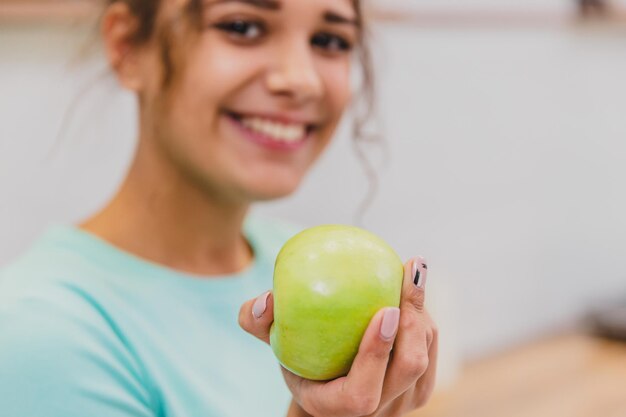Your Guide to Should Diabetics Eat Apples
What You Get:
Free Guide
Free, helpful information about Diabetes FAQ and related Should Diabetics Eat Apples topics.
Helpful Information
Get clear and easy-to-understand details about Should Diabetics Eat Apples topics and resources.
Personalized Offers
Answer a few optional questions to receive offers or information related to Diabetes FAQ. The survey is optional and not required to access your free guide.
Can Diabetics Safely Enjoy Apples? Here's What You Need to Know
If you've ever wondered whether diabetics can eat apples, you're not alone. This age-old fruit is often placed in the ambiguous zone of "healthy" yet "sugary" foods. Let's navigate this dilemma and unravel why apples can indeed be part of a diabetic-friendly diet.
The Nutritional Power of Apples
Apples are loaded with essential nutrients and fiber, which play a beneficial role in maintaining overall health. A medium-sized apple contains approximately 25 grams of carbohydrates, including about 4 grams of fiber, which can help slow down the absorption of sugar in the bloodstream. The fiber is primarily soluble fiber, known for its ability to aid in digestion and regulate blood sugar levels.
Besides fiber, apples boast a range of vitamins and antioxidants. Vitamin C, quercetin, and flavonoids contribute to reducing oxidative stress and inflammation—factors often complicating diabetes management.
Managing Blood Sugar: The Apple Effect
For diabetics, keeping track of glycemic index (GI) and glycemic load (GL) is crucial when selecting fruits. Apples have a low GI of about 36, meaning they cause a slow and gradual rise in blood sugar levels. Additionally, their GL is low, indicating their overall impact on blood sugar is modest when consumed in normal portions.
Incorporating apples as part of a balanced meal plan with proteins and fats can further mitigate any spikes in blood glucose, allowing diabetics to enjoy apples without significantly impacting their blood sugar.
Choosing and Consuming Apples Wisely
For optimal health benefits:
- Opt for whole apples rather than juices or dried versions, which can concentrate sugar and calories.
- Aim to consume apples with the skin on, as most fibers and antioxidants dwell near the peel.
- Balance the apple with a source of protein or healthy fat, such as a handful of nuts or a smear of peanut butter, slowing sugar absorption.
Always consult with healthcare providers or a nutritionist to tailor dietary practices to individual needs and requests.
So, Can Diabetics Eat Apples?
Yes! Apples can be a healthy component of a diabetic's diet when consumed mindfully and in moderation. With their nutritional bounty and blood sugar-friendly profile, apples not only satisfy sweet cravings but also contribute positively to overall health management for diabetics.
While navigating the world of diabetes, making informed dietary choices is vital. However, financial assistance and educational resources can often make a significant difference, offering support beyond nutritional guidance.
Helpful Financial and Educational Resources for Diabetics
- 🏥 Medicaid and Medicare Benefits: Programs offering healthcare coverage which can include nutritional counseling and diabetes management services.
- 💸 Supplemental Nutrition Assistance Program (SNAP): Provides financial aid for purchasing healthy foods, ensuring access to essential dietary needs.
- 🧾 Discount Prescription Programs: Many pharmacies offer plans to help manage the cost of diabetes medications and supplies.
- 📚 Educational Grants for Health Studies: Scholarships and grants are available for those pursuing studies in health sciences, particularly in chronic disease management.
- 🏛️ Debt Relief Programs: For those managing both diabetes and debt, various federal and state programs are designed to provide financial relief.
These resources can alleviate some burdens associated with managing diabetes, enabling individuals to focus more on their health and well-being.
Embrace a healthier living journey by integrating the power of apples with informed, financially sound decisions!
What You Get:
Free Diabetes FAQ Guide
Free, helpful information about Should Diabetics Eat Apples and related resources.

Helpful Information
Get clear, easy-to-understand details about Should Diabetics Eat Apples topics.

Optional Personalized Offers
Answer a few optional questions to see offers or information related to Diabetes FAQ. Participation is not required to get your free guide.


